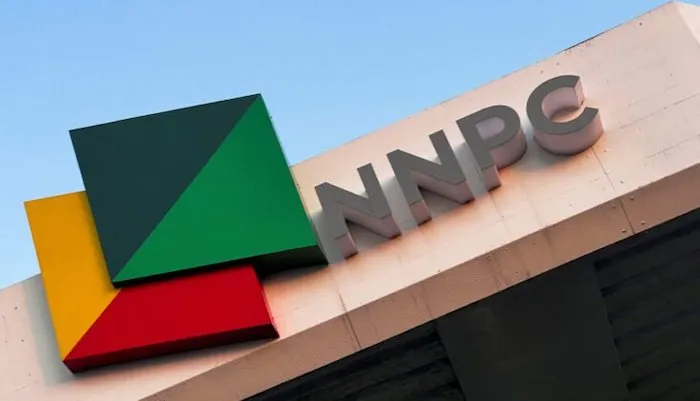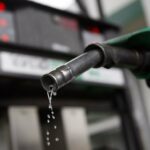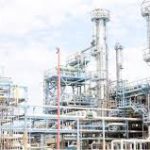The Group Chief Executive Officer (GCEO) of the Nigerian National Petroleum Company Limited (NNPLC), Mele Kyari, has charged oil companies operating in Nigeria to join the national oil company in its quest to boost oil and gas production in the country.
Kyari said this while delivering a keynote address on Monday in Abuja at the opening session of the Nigerian Oil and Gas Energy Week with the theme: “Showcasing Opportunities, Driving Investment, Meeting Demand”.
He called on all players in the industry to collaborate towards reducing the cost of production and boosting production to target levels.
On medium to long-term measures aimed at boosting and sustaining production, Kyari said NNPC Ltd. would replace all the old crude oil pipelines built over four decades ago and also introduce a rig sharing programme with its partners to ensure that production rigs stay in the country for between four and five years which is the standard practice in most climes.
- Police recover 3-month-old baby in front of Anambra school
- 96 suspects arrested as police raid criminal hideouts in FCT
He expressed the Company’s commitment to investing in critical midstream gas infrastructure such as the Obiafu-Obrikom-Oben (OB3) and the Ajaokuta-Kaduna-Kano gas pipelines to boost domestic gas production and supply for power generation, industrial development and economic prosperity of the country.
On Compressed Natural Gas (CNG), Kyari observed that NNPC Ltd. has since keyed into the Presidential CNG drive, adding that in conjunction with partners such as NIPCO Gas, NNPC Ltd. has built a number of CNG stations, 12 of which will be commissioned on Thursday in Lagos and Abuja.
Kyari said that NNPCL would henceforth lead the battle in growing crude oil production in Nigeria, adding that the national oil company would no longer allow itself to be delayed in its quest to achieve the vision of President Bola Tinubu for the energy sector.
Independent producers to FG: Resolve IOCs’ divestment to boost crude production
Also at the conference, the Chairman of the Independent Petroleum Producers Group (IPPG), Abdulrazaq Isa, called for a speedy resolution of divestment involving the International Oil Companies (IOCs) so as to unlock crude oil production to about 2.5 million barrels per day.
He told the participants at the event that the approval of IOCs’ divestment would also restore global investor confidence in Nigeria at a time of huge competition for investments in the energy sector.
He stated further that despite a huge hydrocarbon resource base, with over 37 billion barrels of proven crude oil reserves and 207 tcf and 600 tcf of proven gas reserves, the country was in a situation where the daily production had significantly dropped to about 1.3 million barrels of crude oil per day and 8.5 billion standard cubic feet (scf) of gas per day.
This, he noted, was far below the nation’s capacity, noting further that Nigeria ran the risk of partial implementation of its national budget considering an estimated deficit of 400,000 bpd from the forecasted 1.78 million bpd.
He further said, “IPPG strongly advocates that our member companies: Seplat, the Renaissance Consortium and Oando, have the proven track record to successfully take over and manage these onshore and shallow water assets to realise incremental production in the region of 100,000 to 200,000 barrels of oil and over 1.5 billion scf of gas per day within 24 months and well over 500,000 barrels of oil per day in the long-term.
“IPPG believes the timely approval of these IOCs’ divestment transactions will also be a clear signal capable of restoring global investor confidence in Nigeria in an era of competing global investment destinations in Africa and very limited access to capital.
“The urgent need to address deep water development and production by untangling issues around deep-water development, particularly in terms of competitive fiscal regime being negotiated with Shell, Total Energies, ExxonMobil and Chevron, has the potential to unlock incremental production of 700,000 barrels per day from this terrain in the short to medium-term.
“Enabling deep water development will attract significant economic benefits as Nigeria has one of the world’s largest untapped deep water resource bases.”
“It is, therefore, imperative to grow our daily production to 2.5 million barrels of oil and 10 bcf of gas in the near to long term to ensure we can meet our domestic refinery and petrochemical demands and export commitments to generate the much-needed foreign exchange earnings for macro-economic stability.”

 Join Daily Trust WhatsApp Community For Quick Access To News and Happenings Around You.
Join Daily Trust WhatsApp Community For Quick Access To News and Happenings Around You.


